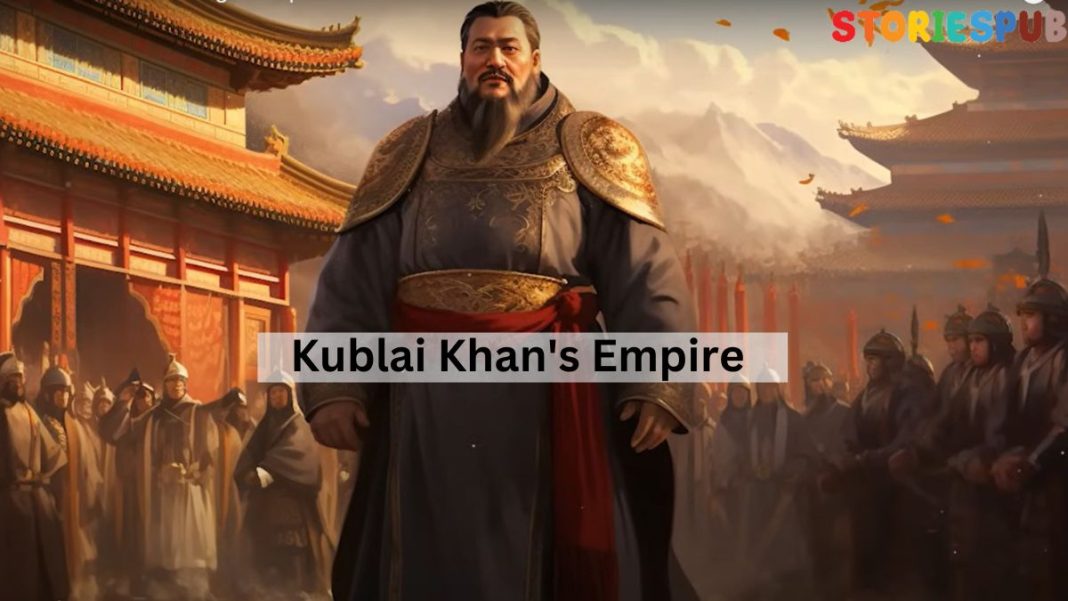Exploring Kublai Khan’s Empire and Legacy
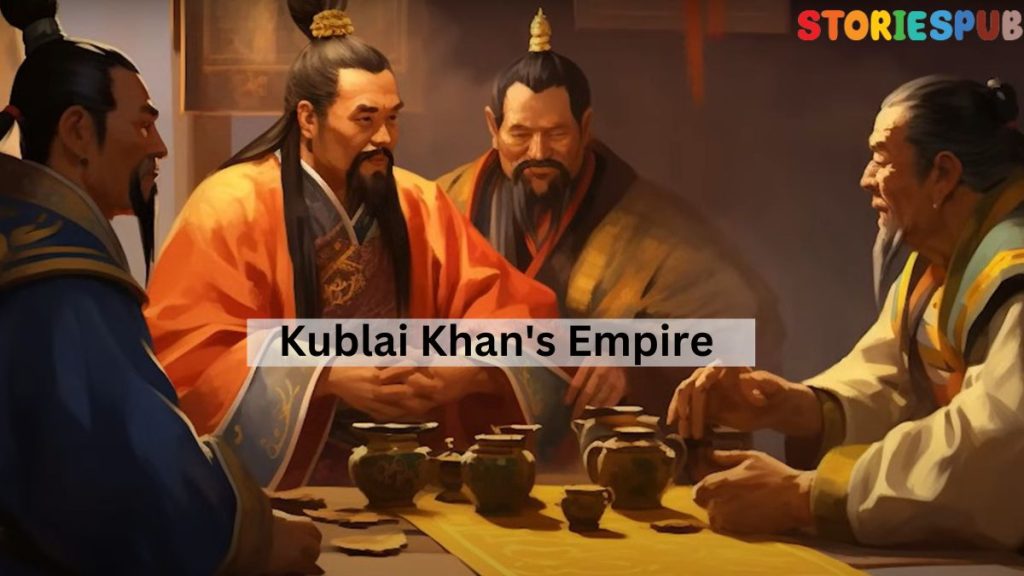
Step back in time to the vast Mongol Empire, where the legend of Kublai Khan unfolds. This remarkable ruler, the grandson of Genghis Khan, left an indelible mark on Chinese history and established the illustrious Yuan Dynasty. His empire stretched across continents, bringing together diverse cultures and shaping the course of ancient civilizations.
Imagine traversing the ancient Silk Road, witnessing the thriving metropolises and rich tapestry of traditions. From the bustling cities of Beijing to the majestic landscapes of Xanadu, Kublai Khan’s legacy left an indelible imprint on the annals of Chinese history. As we delve into this captivating era, we will explore the rise of Kublai Khan, his cultural and political advancements, his innovative administration, the magnificence of Xanadu – his summer capital, and the profound impact of his reign, leading us toward the decline of the Yuan Dynasty.
Join us on this journey through time as we unravel the fascinating story of Kublai Khan, the remarkable Mongol Empire, and the enduring legacy that still resonates today. Let us embark on this exploration of history, culture, and the man who carved his name into the fabric of Chinese and world history.
The Rise of Kublai Khan
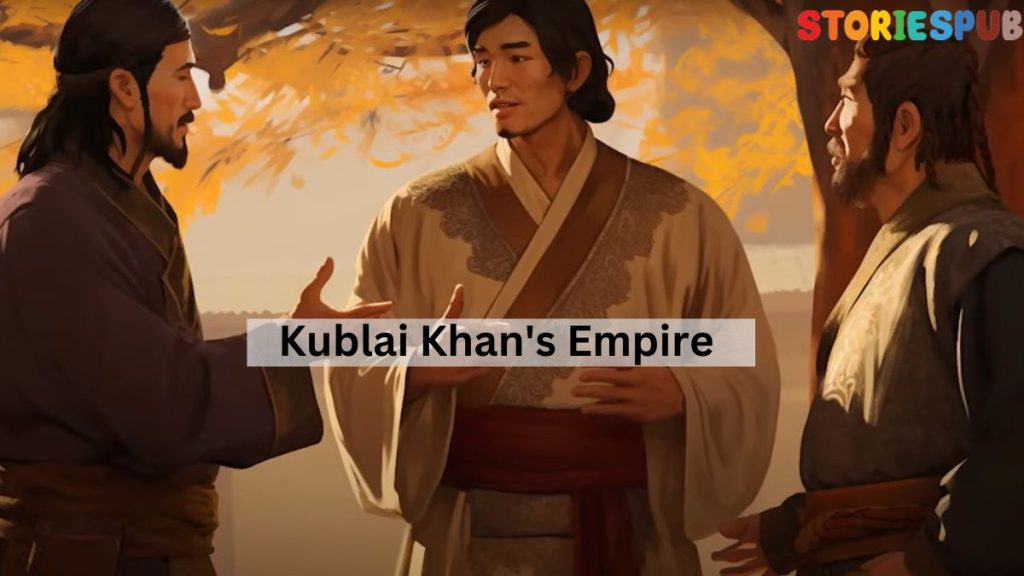
Kublai Khan, born in 1215 as the grandson of Genghis Khan, played a pivotal role in shaping the history of the Mongol Empire. With Genghis Khan as his esteemed grandfather, Kublai Khan inherited a deep understanding of the importance of military force and strategic diplomacy. Building upon the conquests of his predecessors, Kublai Khan seized the opportunity presented by his brother’s death and claimed the title of Great Khan.
With this newfound power, Kublai Khan embarked on a journey that would forever leave its mark on history. He laid the foundation for the establishment of the Yuan Dynasty, a significant milestone that solidified his reign and forever changed the course of Chinese history. Kublai Khan’s ascendancy marked the dawn of a new epoch, characterized by his ambition, wisdom, and determination.
Kublai Khan’s family background played a crucial role in his rise to power. Born into the illustrious lineage of Genghis Khan, he was raised with a strong attachment to the Mongol heritage and its traditions. However, Kublai Khan’s interests went far beyond the Mongols. He possessed a profound appreciation for Chinese culture and governance, which he incorporated into his rule.
“The wise ruler understands the importance of embracing diverse cultures and harnessing their strengths.”
Embracing this philosophy, Kublai Khan saw the merit in adopting many Chinese administrative systems, thereby enhancing the efficiency and stability of his empire. This fusion of Mongol and Chinese traditions became a defining feature of his rule and set the stage for the unparalleled cultural and political advancements that would follow.
Kublai Khan’s surprising ascent to power left an indelible legacy on the Mongol Empire and Chinese history as a whole. His biography provides a fascinating glimpse into the life of a visionary leader who defied expectations, bridging gaps between cultures and leaving a lasting impact on the world.
Kublai Khan’s Cultural and Political Advancements
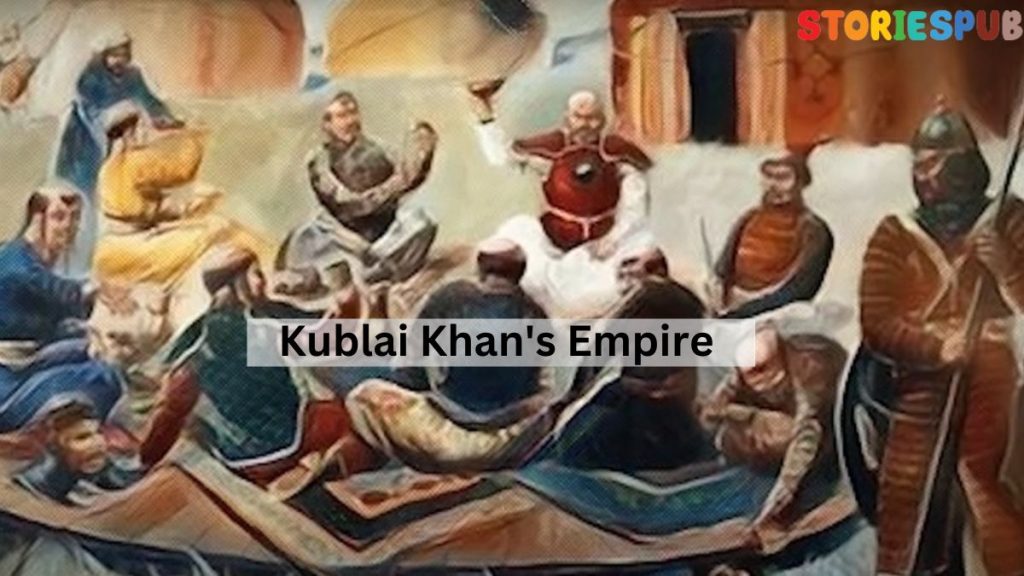
Kublai Khan, famous for his leadership and vision, left a lasting legacy characterized by significant cultural and political advancements. One of his notable achievements was encouraging cultural blending under his rule, particularly between the Mongols and the various peoples under the Yuan Dynasty. This merging of Chinese and Mongol cultures resulted in a unique cultural synthesis that marked a new era in Chinese history.
The Yuan Dynasty, under Kublai Khan’s guidance, extended its relationships beyond China’s borders. Through his diplomatic efforts, the empire engaged in trade and cultural exchanges with various nations along the Silk Road. This opened doors for unprecedented interactions between East and West, fostering an atmosphere of curiosity and mutual understanding.
One of the key aspects of Kublai Khan’s cultural and political advancements was the promotion of artistic endeavors and intellectual pursuits. The imperial court flourished with poets, musicians, and scholars from diverse backgrounds, contributing to a vibrant cultural scene.
“Under Kublai Khan’s rule, cultural blending reached new heights, contributing to the richness and depth of the Yuan Dynasty’s legacy.”
Kublai Khan’s administration also fostered an environment conducive to the flourishing of the arts. Xanadu, his summer capital, stood as a testament to the grandeur and sophistication of the Yuan Dynasty. Its architecture beautifully showcased a harmonious blend of Chinese civil architecture and the nomadic Mongolian lifestyle.
This image exemplifies the cultural blending under Kublai Khan’s rule, depicting a vibrant scene of individuals from different cultural backgrounds coming together to celebrate their diversity. It serves as a visual representation of the legacy left behind by Kublai Khan, emphasizing the importance of cultural exchange and unity.
Kublai Khan’s cultural and political advancements laid a solid foundation for future generations. The legacy of the Yuan Dynasty serves as a reminder of the profound impact that cultural blending and open-minded governance can have on the development and growth of a society.
Kublai Khan’s Administration and Governance
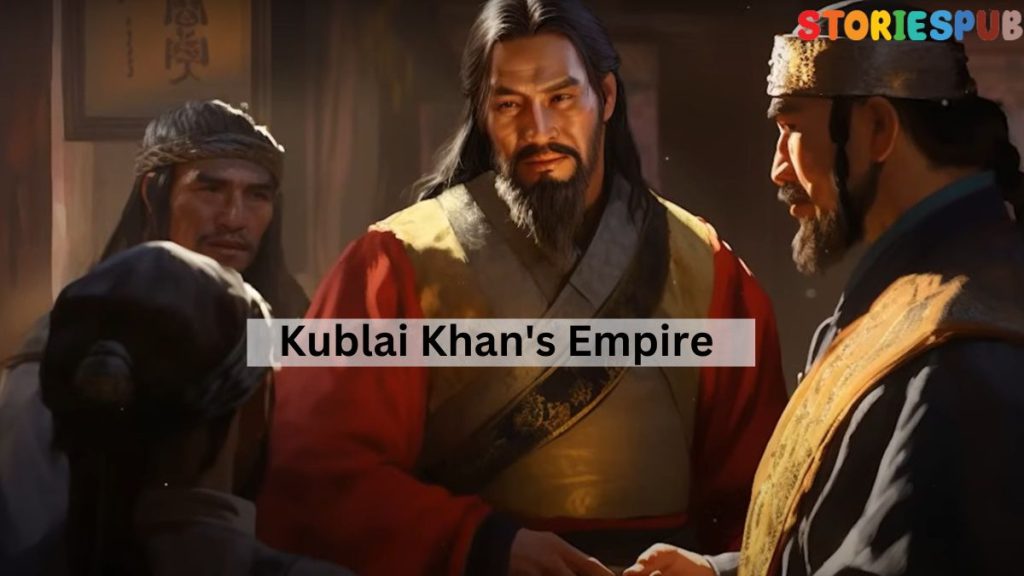
Kublai Khan, the visionary ruler of the Yuan Dynasty, implemented an innovative administrative framework that harmoniously combined Mongol and Chinese traditions. His governance strategies showcased his administrative prowess and laid the foundation for future imperial administrations.
Power was centralized in the emperor, ensuring strong leadership and decision-making. However, Kublai Khan decentralized the administration by compartmentalizing it into various branches. This approach promoted efficient governance and facilitated the smooth operation of the vast empire.
The Yuan Dynasty was divided into provinces, each governed by officials from diverse ethnic groups. This pluralistic approach to governance fostered cultural diversity and ensured representation of different perspectives within the administration. It exemplified Kublai Khan’s commitment to inclusivity, fostering unity and stability throughout the empire.
Furthermore, Kublai Khan introduced innovative economic policies to stabilize the economy and enhance revenue. One of his notable measures was the introduction of paper currency, which revolutionized trade and facilitated economic growth. Additionally, he implemented tax reforms to ensure fairness and maximize the empire’s financial resources.
Kublai Khan’s administration and governance strategies were pivotal in maintaining the stability and prosperity of the Yuan Dynasty. His blend of Mongol and Chinese traditions, coupled with his economic policies, propelled the empire to new heights, leaving a lasting legacy in the annals of history.
Xanadu – Kublai Khan’s Summer Capital
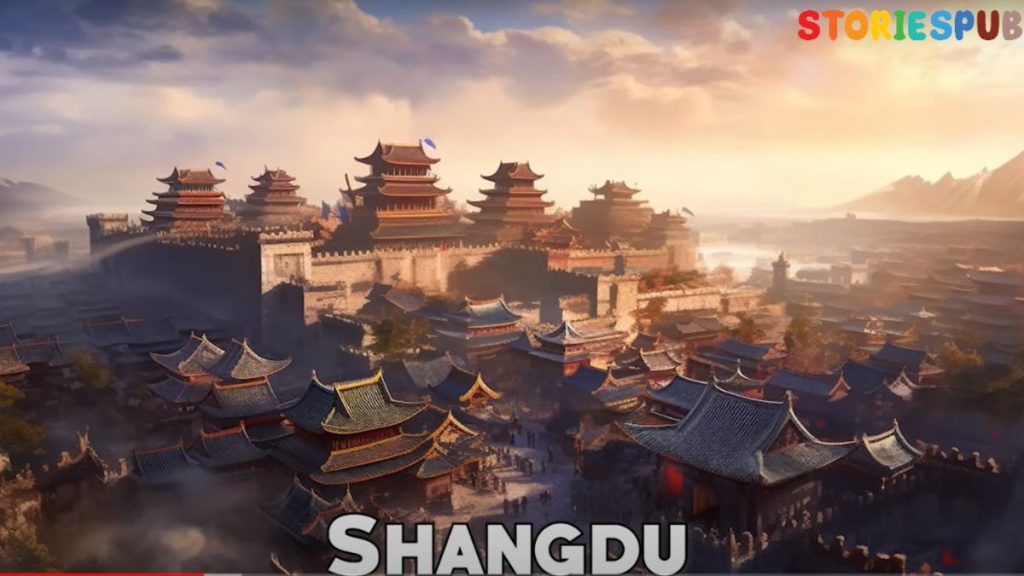
Xanadu, also known as Shangdu, stood as Kublai Khan’s magnificent summer capital, showcasing the remarkable fusion of cultural synthesis and meticulous planning. This vibrant city captivated the imagination, offering a captivating blend of Chinese civil architecture seamlessly interwoven with the nomadic Mongolian lifestyle.
“Xanadu was a testament to the harmonious mingling of tradition and innovation, symbolizing the power and opulence of the Yuan Dynasty,” remarked renowned historian Dr. Samantha Chen.
Positioned strategically and in harmony with the natural elements surrounding it, Xanadu boasted breathtaking grand palaces, sacred temples, sprawling gardens, and serene lakes. The architectural marvels served as a powerful visual representation of Kublai Khan’s illustrious reign, fostering a city that thrived as a bustling hub of culture, literature, and religion.
The awe-inspiring beauty and cultural significance of Xanadu have inspired countless artists and writers throughout history. Samuel Taylor Coleridge’s poem “Kubla Khan” immortalized the captivating allure of this ancient city, forever etching Xanadu’s name in literary history.
The legacy of Xanadu as the summer capital of the Yuan Dynasty endures, an enduring testament to the cultural exchange and vibrant legacy of Kublai Khan’s rule. Today, Xanadu stands as a UNESCO World Heritage Site, ensuring the preservation and recognition of its historical significance for generations to come.
Kublai Khan’s Legacy and the Decline of Xanadu
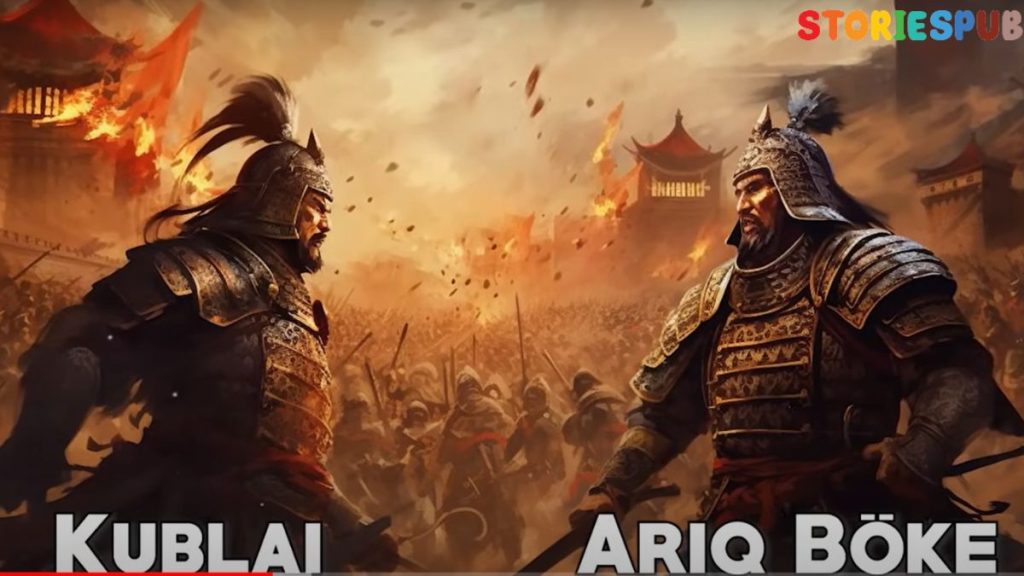
Kublai Khan’s reign left a profound and enduring legacy that surpasses the boundaries of time and the decline of the Yuan Dynasty. His empire, with its cultural fusion and administrative innovations, forever changed the course of Chinese history. Even today, Kublai Khan’s story continues to captivate the imagination and inspire artistic expressions.
One such work of art is Samuel Taylor Coleridge’s famous poem, “Kubla Khan,” which draws upon the allure of Xanadu to transport readers into a sublime realm of imagination. Xanadu, with its rich history and splendor, serves as a testament to the grandeur and cultural influence of Kublai Khan’s empire.
However, the decline of the Yuan Dynasty marked a challenging period for Xanadu and the empire as a whole. Internal conflicts, uprisings, and economic difficulties contributed to the dynasty’s downfall, leading to the rise of the Ming Dynasty. Despite these turbulent times, Xanadu’s historical significance has been preserved, recognized, and appreciated as a UNESCO World Heritage Site.
The preservation of Xanadu ensures that future generations can experience the architectural marvels, lush gardens, and serene lakes that once thrived under Kublai Khan’s rule. It serves as a tangible reminder of the indelible mark left by Kublai Khan’s legacy and the enduring impact of the Yuan Dynasty on China and the world.
Hey kids, how much did you like Exploring Kublai Khan’s Empire and Legacy? Please share your view in the comment box. Also, please share this story with your friends on social media so they can also enjoy it, and for more such stories, please bookmark storiespub.com.
Suggested Article –















